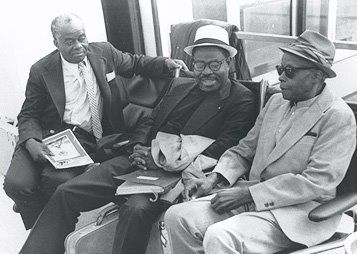When Massachusetts-born scholar W.E.B. DuBois spoke of ” the talented tenth,” a term popularized by white Northern liberals, he spoke primarily of a leadership class of African-Americans who would “guide the mass away from the contamination and death of the worst, in their own and other races.” While DuBois stressed the importance of classical education, he was less concerned about “what the university of the Negro should teach or how it should teach it.”
The Harlem Renaissance, which thrived due to the Great Migration from the South to Black neighborhoods in the North and Midwest ,was a period that reflected Black excellence. However, while there was cultural explosion in Harlem and a formation of a Black middle class in the North, these young scholars born in the South under Jim Crow laws not only excelled in education but worked tirelessly to change what Blacks should learn of themselves.
In his later life, DuBois came to believe that leadership could arise from many levels, and grassroots efforts were also important to social change. His stepson David DuBois tried to publicize those views, writing in 1972: “Dr. Du Bois’ conviction that it’s those who suffered most and have the least to lose that we should look to for our steadfast, dependable and uncompromising leadership.”
Dr. Chancellor Williams
Born in Bennettsville, South Carolina (1898-1992)
Dr. Williams was a sociologist, historian and writer. His work was spacious and varied, however his crowning glory is his opus, The Destruction of Black Civilization, which took him 16 years of research and field study to compile.
Historian Runoko Rashidi states it best:
“Of the recent towering figures in the struggle to completely eradicate the pervasive racial myths clinging to the origins of Nile Valley Civilization, few scholars have had the impact of Dr. Chancellor James Williams. Chancellor Williams, the youngest of five children, was born in Bennetsville, South Carolina, December 22, 1898. His father had been a slave; his mother a cook, nurse, and evangelist.
“[In] The Destruction of Black Civilization Chancellor Williams successfully shifted the main focus from the history of Arabs and Europeans in Africa to the Africans themselves–a history of the Blacks that is a history of Blacks.”



